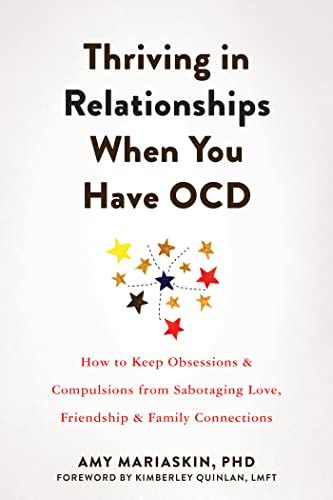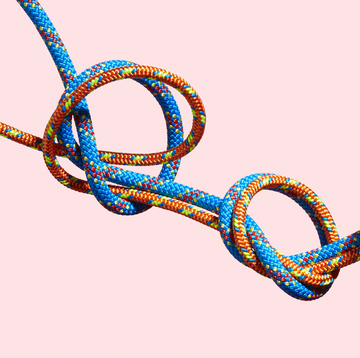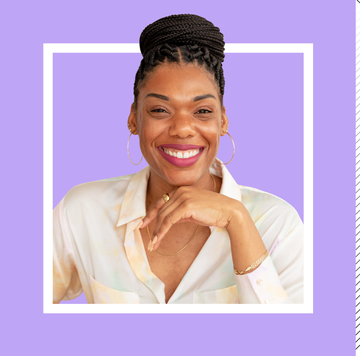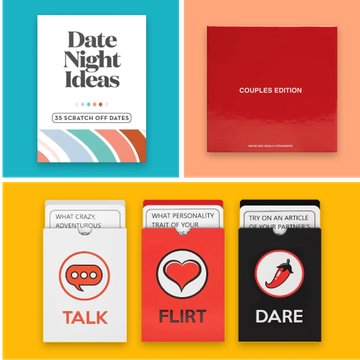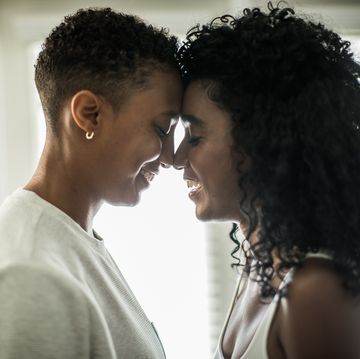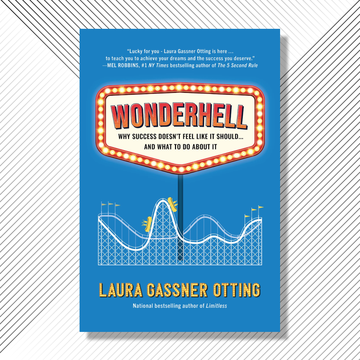The foundation for romantic intimacy is getting to know each other’s inner worlds. And since OCD is a core part of your world, it’s worth thinking about how you might disclose your symptoms to your partner. Oh no, you might think, I’m not sure anyone wants to see the kinds of things playing out in my head! But telling your partner about OCD doesn’t mean unleashing a stream of consciousness of every thought, impulse, or urge you experience. It means sharing some of the things that make you unique.
What you reveal about yourself doesn’t have to be emotionally loaded or even particularly deep at first; it can be sharing your favorite movies, talking about how you spend your free time, and learning about each other’s siblings. Over time, as intimacy deepens, sharing more vulnerable parts of your inner world becomes valuable, too. After all, if a person is going to be part of your life, it’s important that they’re part of your whole life, or at least the biggest parts.
Questions about when to disclose are among the most common that I’m asked in my therapy practice. Understandably, people want to know how to effectively reveal private and sometimes painful information in a way that will bring them closer to loved ones. And as with almost any other important conversation in life, there’s no guarantee that it will go the way you planned. In this way, disclosure is a form of exposure: You must be willing to accept the risk that your partner may not react in a supportive way.
More From Oprah Daily

If you’re willing to take this risk, start by examining your motivation. There are so many reasons to share, some of which are likely to help you nurture intimacy and some of which are more likely to nurture OCD symptoms. Ask yourself if you’re disclosing out of a sense of obligation (they should know the mess they’re getting into, or If I don’t tell them, I’m lying) or as an apology for having OCD (I’m so sorry that I’m messed up, and I get it if you want to leave). If it’s an apology, your disclosure may be rooted in shame, embarrassment, or anxiety rather than a genuine desire to be open about yourself to strengthen your connection.
Another way to approach disclosure is to see if it’s what ACT (acceptance commitment therapy) therapists call a “toward move” or an “away move.” Toward moves bring us closer to things that are important to us, while away moves serve to reduce anxiety, discomfort, or other unwanted emotions. A toward move would be disclosing your OCD so that your partner understands your behavior better and can support you, while an away move would serve to provide quick and temporary relief from discomfort. What fears do you notice getting in the way of disclosure? Do you have any evidence that these fears would play out based on past behavior? Notice if you find yourself ruminating on this last question, trying to get some elusive certainty. If fears are motivating your decisions, you might be engaging in an away move.
Remember that you don’t have to tell anyone everything about your symptoms right away. Disclosure can be offered in small bits, allowing you to retain a sense of privacy. Maybe you want to reveal that you have mental health concerns without labeling the OCD itself. Or perhaps you want to talk about the symptoms that are most visible first. Providing your loved one with resources about OCD may be helpful, too. Books, blog posts, social media accounts, or websites can all enhance their understanding without putting the burden of education all on you.
Again, disclosure is an exposure because you can’t control the outcome, and that means being willing to accept whatever comes next after you reveal your OCD. This doesn’t mean liking how it feels or approving of your partner’s response, but it does mean accepting reality as it is. For example, if I were to wake up on the day of running a marathon (a purely hypothetical event, I can assure you) and discover that the weather was blustery, I could accept the cold and the rain without liking it or trying to change it. Your relationship meteorology after a disclosure may feel cooler or warmer than expected; your partner might react with surprising calm and understanding, or they might find the disclosure difficult to process or accept. But trying to predict this accurately is like…well, like trying to predict the weather. The marathoner who wakes up on a windy, rainy day will probably run the marathon anyway, accepting the discomfort even if they don’t entirely like it. Afterward, they’ll know they completed it because it was worthwhile, just as you’ll know that disclosure for the sake of greater intimacy is ultimately important, no matter the outcome.
To prepare to disclose your OCD to someone, I suggest writing down what’s important for you to say and how you’d like to say it. Here’s an example:
I have OCD. I wanted to tell you about it because I’d love to have your support when it’s rearing up. I also wanted you to know so that when I’m struggling, you can have a context for my behavior and won’t think that I’m withdrawing or getting stuck because of something you’ve done. I’m not ready to tell you about all my symptoms because some of them are a little tough to talk about. But I wanted to start the conversation.
This example establishes boundaries around what’s up for discussion, which is an avenue you might want to take. However you tell someone, remember that disclosing your OCD is foundational for a strong relationship, and that you get to set the pace.
New Harbinger Publications, Inc. Copyright © 2022 Amy Mariaskin

